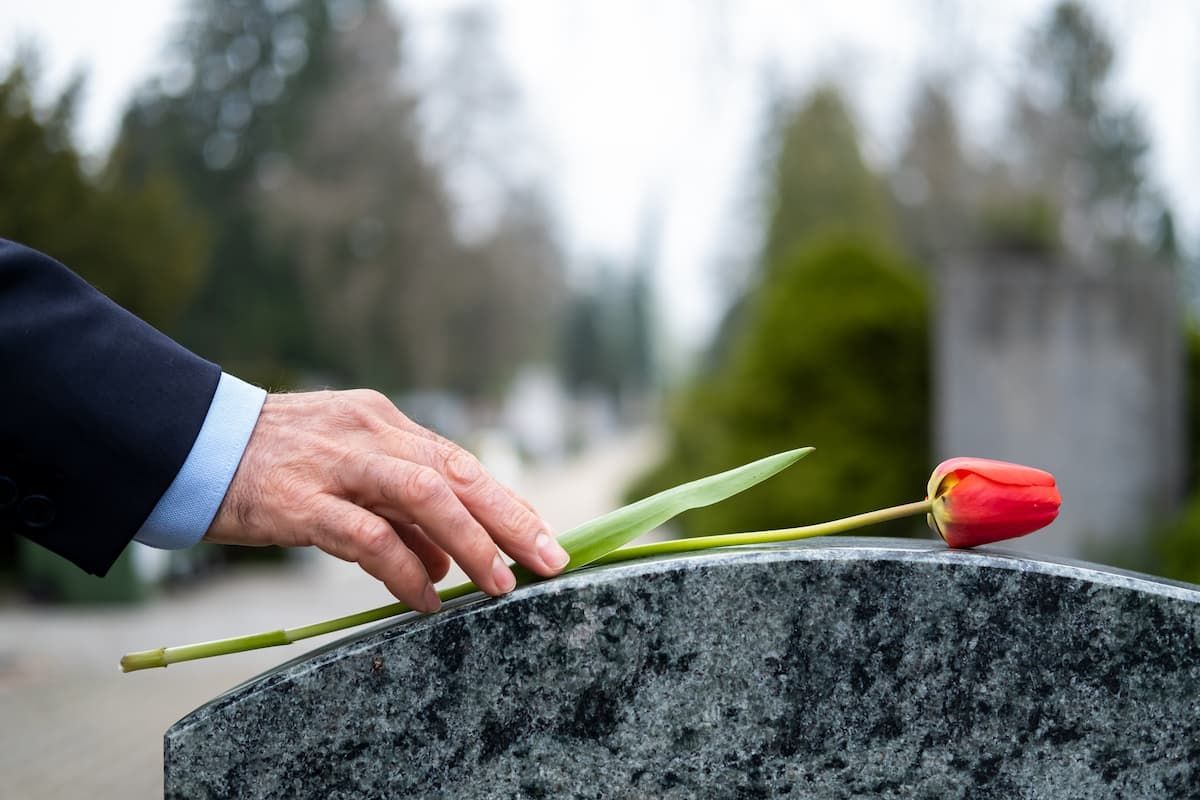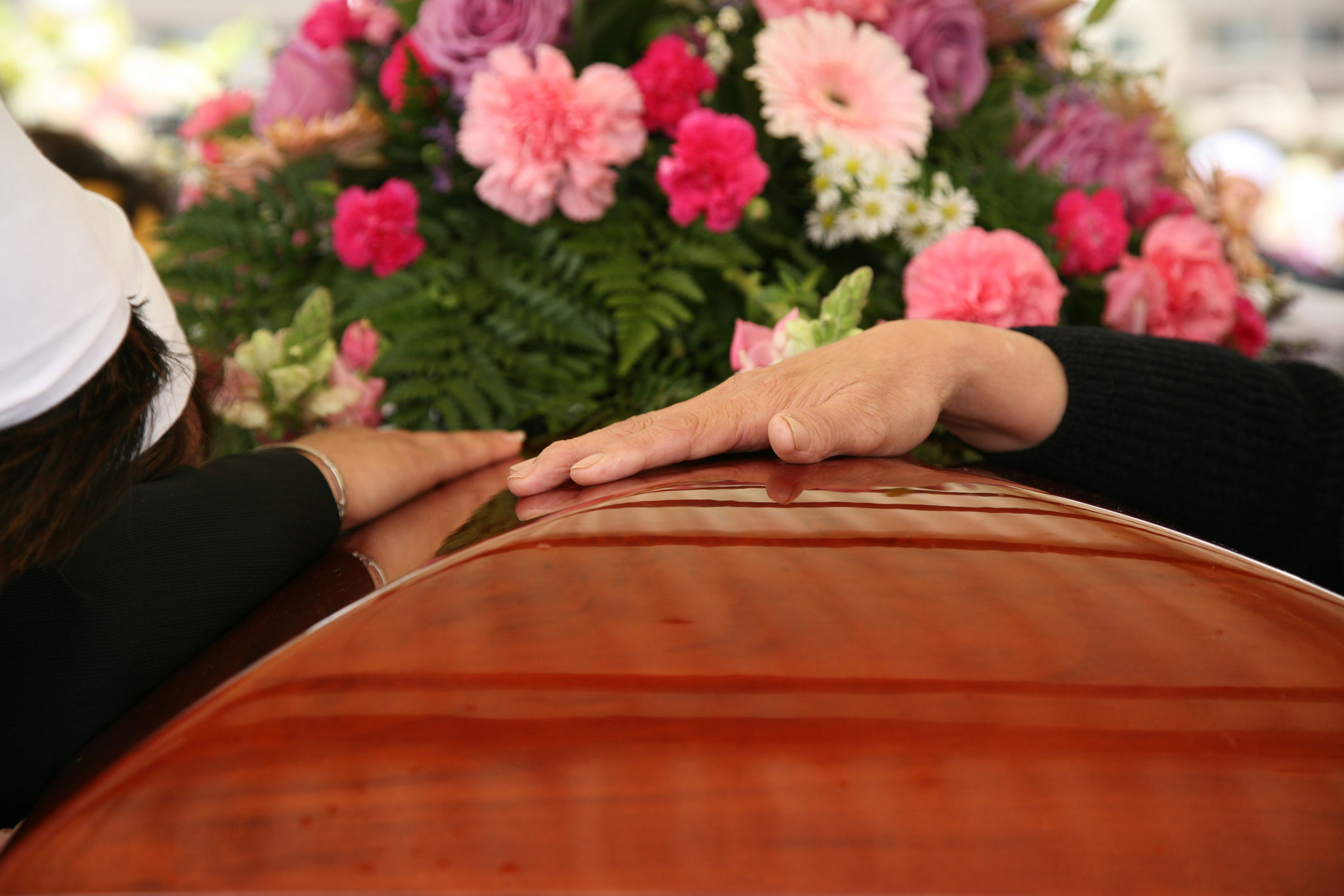Recent Articles
Welcome to our blog! Here we will share information with you on topics ranging from cremation and funeral planning to grief support and positive living. You can also sign up for our email newsletter to receive ongoing updates.

Losing a loved one is an emotional and challenging time, and navigating the funeral process can feel overwhelming. Whether it’s your first time making funeral arrangements or you’re unsure about certain aspects of the process, it’s natural to have many questions. Understanding the typical procedures and options available can help ease the burden during this difficult time. Here are some of the most frequently asked funeral questions and their answers to guide you through the process. 1. What is the difference between a funeral and a memorial service? A funeral typically involves a ceremony held with the body of the deceased present, either before or during burial or cremation. It often includes a viewing or wake, where family and friends can pay their respects. A memorial service , on the other hand, takes place after the body has been buried or cremated and does not involve the presence of the body. Memorial services may be held in various settings, such as homes, churches, or other venues, and can be personalized to reflect the life of the deceased. 2. What is embalming, and is it required? Embalming is a process that involves preserving the body to delay decomposition, usually for viewing purposes. It is not legally required in most places but may be necessary if the body is to be displayed at a public service or transported over long distances. In cases where there will be no viewing, embalming is typically not needed. However, certain states or countries may have regulations about embalming or the timing of burial. It’s important to check with the funeral home to determine what’s required in your area. 3. How much does a funeral cost? The cost of a funeral can vary greatly depending on factors like location, the type of service, and the funeral home you choose. There are options to help manage funeral expenses, such as cremation (which can be less expensive than burial), choosing a less elaborate service, or purchasing a funeral plan in advance. 4. What is cremation, and how does it differ from burial? Cremation involves the process of reducing the body to ashes. Many people choose cremation for its simplicity, lower cost, and flexibility in how the ashes can be kept, scattered, or interred. Some people opt for a cremation memorial service, where the ashes are present but there is no body. Burial , on the other hand, involves placing the body in a casket and then burying it in a cemetery. This option may include the purchase of a grave plot, headstone, and other related services. The choice between cremation and burial depends on personal, cultural, and religious preferences. 5. What are the steps in planning a funeral? Planning a funeral typically involves the following steps: Notify family and friends : Reach out to close family and friends and inform them of the passing. Choose a funeral home : Select a funeral home to help with arrangements, including embalming (if applicable), obtaining necessary permits, and coordinating transportation. Select the type of service : Decide on whether you want a funeral, memorial, or graveside service. You’ll also need to choose the location and any religious or cultural elements to incorporate. Choose a casket or urn : Select a casket for burial or an urn for cremation. There are many styles and price ranges to choose from. Plan the ceremony : Work with the funeral director to plan the service, including music, readings, eulogies, and floral arrangements. Arrange for transportation : The funeral home will coordinate the transportation of the body to the service and burial or cremation site. 6. Should I pre-plan a funeral? Pre-planning a funeral is a personal choice. Many people choose to pre-plan to relieve their loved ones of the burden of making arrangements during a time of grief. Pre-planning allows you to specify your wishes for the service, casket, burial, and other aspects of the funeral, ensuring your desires are respected. Additionally, pre-paying for a funeral can help protect your family from rising costs in the future. However, it’s important to carefully consider pre-planning options, as funeral costs can vary, and you’ll want to ensure that the plan is flexible and fully understood by the family members who will carry out your wishes. 7. What are the options for scattering ashes? If you choose cremation, there are many options for what to do with the ashes: Scattering : Many people choose to scatter the ashes in a location that had significance to the deceased, such as a favorite park, beach, or nature spot. Keepsake urns : Some families choose to keep a portion of the ashes in a special urn or piece of jewelry. Interment : Ashes can be interred in a family plot or at a cemetery, either in a niche or within a memorial garden. Other creative options : There are many creative options for commemorating the deceased, including turning ashes into diamonds or using them to create a memorial reef. 8. What is a death certificate, and why is it important? A death certificate is an official document issued by a governmental authority that confirms the death of a person. It is essential for handling legal and financial matters, such as settling the deceased’s estate, claiming life insurance, and closing accounts. The funeral home typically assists in obtaining several copies of the death certificate. 9. Can I personalize a funeral service? Absolutely! Many families choose to personalize the funeral service to reflect the deceased's personality, passions, or hobbies. You can incorporate meaningful music, photos, special readings, or even display personal items that were important to the deceased. The funeral director can help guide you through creative options for personalization. 10. What should I do if I can’t attend the funeral? If you’re unable to attend the funeral in person, consider sending flowers, a sympathy card, or making a charitable donation in the deceased’s honor. If the family holds a memorial service, they may also offer the option to participate virtually, such as through a livestream. It’s always thoughtful to express your condolences in any way possible. Funeral planning can be complex, but understanding the answers to these frequently asked questions can help make the process easier to navigate. Whether you are arranging a funeral for a loved one or pre-planning your own, it’s important to take the time to make informed decisions. By doing so, you can create a meaningful, respectful ceremony that honors the life and memory of the deceased, while providing comfort to those who are grieving.

Funerals are an emotionally challenging time, and floral arrangements play a crucial role in expressing condolences, offering comfort, and honoring the memory of the deceased. Whether you are planning a tribute or selecting flowers to send, the arrangement you choose can convey sentiments of sympathy, remembrance, and love. Here’s a guide to help you navigate the selection process thoughtfully and respectfully. Understand the Purpose of Funeral Flowers Funeral flowers have long been associated with expressing sympathy, love, and reverence for the deceased. They provide a visual representation of the support and empathy being extended to grieving families. Floral arrangements can also enhance the atmosphere, offering a sense of peace, comfort, and beauty amidst sorrow. When selecting funeral flowers, think about the emotions you wish to convey. A well-chosen arrangement can serve as a tribute to the life of the deceased and a source of solace for those mourning. Types of Funeral Floral Arrangements There are various floral arrangements, each serving a distinct purpose. Here’s a breakdown of the most common options: Casket Sprays: Typically placed directly on the casket, these large, elegant arrangements are often the most prominent floral tribute. They can be designed in various colors and styles, including traditional or more contemporary themes. Standing Sprays: These arrangements are often displayed at the front of the ceremony or in a prominent location and are typically mounted on an easel. Wreaths: Circular in shape, wreaths symbolize eternity and the circle of life. They can be placed near the casket or at the memorial site. Wreaths are particularly popular for religious ceremonies. Sympathy Bouquets and Basket Arrangements: These smaller arrangements are often sent directly to the family’s home after the funeral. Funeral Crosses: These floral arrangements take the shape of a cross, providing a religious and solemn tribute. Selecting Flowers for the Arrangement The type of flowers chosen for a funeral arrangement can add another layer of meaning. Some flowers have traditional associations with funerals and carry symbolic meanings that make them particularly appropriate for these occasions. Lilies: Often regarded as a symbol of the restored innocence of the soul of the deceased, lilies are a popular choice for funerals. They convey purity and peace. Roses: Different colors of roses convey different meanings. Red roses symbolize love and respect, while white roses represent purity, innocence, and reverence. Yellow roses can symbolize friendship, making them a thoughtful choice for someone who was a dear friend. Chrysanthemums: Particularly popular in many cultures, chrysanthemums symbolize death and are often associated with the honor and remembrance of the deceased. Carnations: Known for their long-lasting qualities, carnations are often used in funeral arrangements to symbolize love and remembrance. Red carnations are associated with admiration, while white carnations represent a love that is eternal. Orchids: An elegant choice, orchids are often associated with beauty, strength, and love. They are a fitting tribute to someone whose beauty or strength left a lasting impression. Daisies: Known for their simplicity and purity, daisies symbolize innocence and are often chosen for someone who led a kind and pure life. Color Choices The color of the flowers can convey different sentiments. Generally, soft pastel tones such as white, pale pink, lavender, and soft yellow are seen as respectful and peaceful. Darker hues like deep reds, purples, or burgundy can symbolize deeper emotions of mourning and respect. Consider the emotional tone you wish to set when selecting the color scheme. White and Light Colors: These colors are symbolic of purity, innocence, and peace. They are ideal for creating a calming, reflective atmosphere. Rich Colors: Darker flowers like deep reds and purples are more somber and convey respect, admiration, and heartfelt mourning. Mixed Colors: A mix of colors can be used to celebrate the life and personality of the deceased, particularly if they enjoy vibrant colors. Selecting funeral flowers is a meaningful way to show respect and offer comfort during a time of loss. When choosing an arrangement, think about the message you want to convey and the emotions you wish to express. From elegant lilies and roses to more personalized arrangements, flowers provide a beautiful tribute to the deceased and a heartfelt gesture for grieving families. Whether you opt for traditional arrangements like casket sprays and wreaths or choose simpler options like sympathy bouquets, your selection can help honor a life lived and provide solace to those mourning the loss. Thoughtfully chosen funeral flowers will offer comfort during one of life’s most challenging moments.

You did it. You have survived a whole year since your loved one passed – a year of holidays, birthdays, and special events without them. Now, the anniversary of their passing is approaching. You may be feeling a flood of different emotions, from lingering grief to an appreciation of the time you did get to spend with them. There is no right or wrong way to feel. If you think you are emotionally ready, doing something special, big or small, on the anniversary of their death can commemorate their life. A lot can happen in a year, and there’s bound to be things you wish you could tell the person you’ve lost. Writing them a letter updating them on your life can feel like you are really communicating with them, even if it’s just for a moment. If you haven’t done anything at all in the year without them, that is more than okay, too. Jot down what you think and feel in a note to them. You can either hold on to what you write, send it off to a friend or family member, or even tear it up – whatever feels right. To reflect on the moments that you did get to share with the person you have lost, look through old photos and videos of them, either on your own or with people who were also close to them. Looking back on the good times might make you miss them even more, but it is important to keep their memory alive. Preparing their favorite meal or eating at their favorite restaurant is another great reason to get together with friends and family to celebrate your loved one’s life. Cooking alongside friends and family can strengthen your bond, and gathering at a restaurant is a special treat after a hard year. While this day is about the person who has passed, taking care of yourself should be a priority as well. Treating yourself to a spa day, a cupcake, a day off work, or anything you wouldn’t normally do can help brighten your day on what is otherwise a rather difficult one. Whoever you are missing would want you to have the most enjoyable day possible, so doing something nice for yourself is a great way to celebrate both the life of that person, as well as your endurance throughout the past year. You knew your loved one the best, so you can make these ideas unique to you, or come up with something completely different to memorialize them. What matters is that you have been strong for the past year, so doing something special on the anniversary

Grief is a universal experience, yet it affects each of us in deeply personal ways. Whether mourning the loss of a loved one, a cherished relationship, or a life chapter that has passed, words can provide comfort and understanding during difficult times. Throughout history, writers, poets, and thinkers have captured the essence of grief, offering wisdom and solace through their words. Here are some of the most poignant quotes about grief and what they teach us about love, loss, and healing. 1. "Grief is the price we pay for love." — Queen Elizabeth II This simple yet profound quote reminds us that grief is a natural consequence of deep love. The pain of loss reflects the depth of our connections, serving as a testament to the significance of those we mourn. 2. "What we have once enjoyed deeply we can never lose. All that we love deeply becomes a part of us." — Helen Keller Helen Keller’s words offer reassurance that love transcends physical presence. The memories and impact of those we've lost remain embedded in our hearts and minds. 3. "No one ever told me that grief felt so like fear." — C.S. Lewis In his book A Grief Observed , Lewis articulates the raw and unpredictable nature of grief. The uncertainty, anxiety, and vulnerability that accompany loss can feel overwhelming, much like fear itself. 4. "There is no grief like the grief that does not speak." — Henry Wadsworth Longfellow This quote highlights the importance of expressing grief. Suppressing sorrow can deepen our pain, while sharing our feelings can foster healing and connection with others who understand. 5. "The reality is that you will grieve forever. You will not 'get over' the loss of a loved one; you will learn to live with it. You will heal and rebuild yourself around the loss you have suffered." — Elisabeth Kübler-Ross Kübler-Ross, a renowned psychiatrist who studied the grieving process, reminds us that grief never truly disappears. Instead, we integrate our losses into our lives, growing around them as we move forward. 6. "Tears shed for another person are not a sign of weakness. They are a sign of a pure heart." — José N. Harris Grief often brings tears, and this quote reassures us that crying is not a weakness but a reflection of the love and compassion we carry within us. 7. "How lucky I am to have something that makes saying goodbye so hard." — A.A. Milne Attributed to the beloved Winnie the Pooh author, this quote shifts our perspective on grief, reminding us to be grateful for the meaningful relationships that make parting so difficult. 8. "Grief, I’ve learned, is really just love. It’s all the love you want to give but cannot. All of that unspent love gathers up in the corners of your eyes, the lump in your throat, and in the hollow part of your chest." — Jamie Anderson Anderson’s words beautifully frame grief as a continuation of love. Even in sorrow, love remains—unexpressed, yet deeply felt. Finding Meaning Through Grief While grief is painful, these words of wisdom remind us that it is also a profound expression of love. Though loss can feel insurmountable, we can find comfort in the knowledge that love never truly leaves us—it transforms, lingers, and shapes the way we continue to live. If you’re grieving, take solace in these words and know that you are not alone. In time, healing will come, and your love for those lost will continue in new and beautiful ways.
Popular Articles

What does it mean to leave a legacy? When people we love pass away, they leave us with memories, but they often leave us with tangible gifts, too. Those may come in the form of family photo albums, letters, or journals. If we’re lucky, they leave behind important traditions that stick with our families for generations.

Losing a loved one is hard on all of us, and can be especially difficult for children, who may not really understand what is going on or what death really means.Sometimes, an activity that children already enjoy can be a good way to connect with them about a difficult topic. To help, we’ve created a printable activity sheet that you can download here from our website to help stir positive memories and conversations about the loved one who is now gone. The sheet includes simple questions that your child can answer about the person who has died, as well as a figure and shapes to color. You can color a worksheet yourself and have a conversation with your child during the process.You may find that your child wants to revisit this activity several times with you as they process more memories and aspects of their loss. Saving the activity sheets in a folder, notebook or photo album can allow them to revisit the memories when they are older.Please know that some children may need additional, professional assistance in processing through a difficult loss. Indications that this might be the case include sadness that is always present and does not subside over time, continual feelings of hopelessness, pulling away from family and friends, an ongoing fixation on the loss, and the inability to accept the loss and embark upon a normal life. If your child experiences these symptoms of depression and/or complicated grief, experts highly recommend seeking professional help for your child immediately.

There are many decisions families need to make in planning their loved one’s final goodbye. We believe that each funeral service is unique, just as every person's life is unique. We are dedicated to making your loved one’s funeral service as special as they were. Here are some ideas to help make your loved one's funeral a wonderful tribute to their life.

